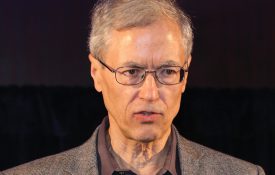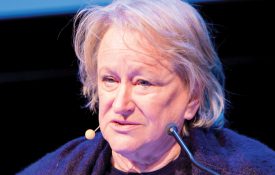-

To Know Thyself, Turn to Science
No matter how well we think we know our own traits, behaviors, and beliefs, experiments show that friends may have insights about us that we lack ourselves, says APS William James Fellow Timothy D. Wilson.
-

Louder Than Words
From facial cues to physical stances, our nonverbal expressions speak volumes to others. APS Fellows Klaus Scherer and Beatrice de Gelder and other researchers share the latest science on communication in the absence of speech.
-
Neuroimaging Highlights Emotion Perception and Memory
Perception often is thought of in terms of sensory stimuli — what we see, hear, and smell — but it extends beyond the five senses, including complex function of emotional perception. We also can turn
-
How to Boast on the Sly
The Atlantic: An essential quandary of social life is how to let others know we’re awesome, without letting them know we want them to know. Is there a way to harvest the reputational benefits of
-
Negative People are More Dangerous Drivers
Neurotic, negative people – think Larry David or George Costanza – are more dangerous behind the wheel, according to new research from the Chinese Academy of Sciences in Beijing. Previous research has found a correlation
-
Eating something sweet can lead to a romantic date
The Washington Post: Ate something bitter? It can make you judgmental. Feeling love is all around? It can make even water taste sweeter. Not only do our emotions influence our perceptions of taste, but what

